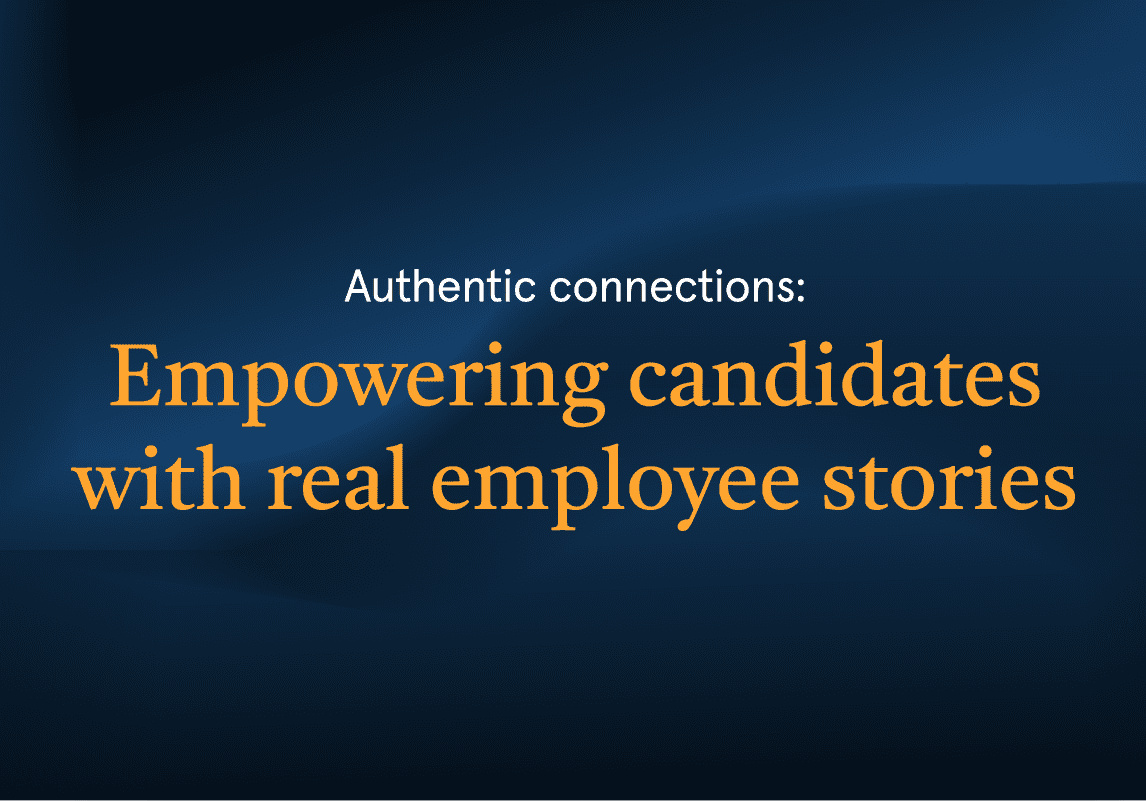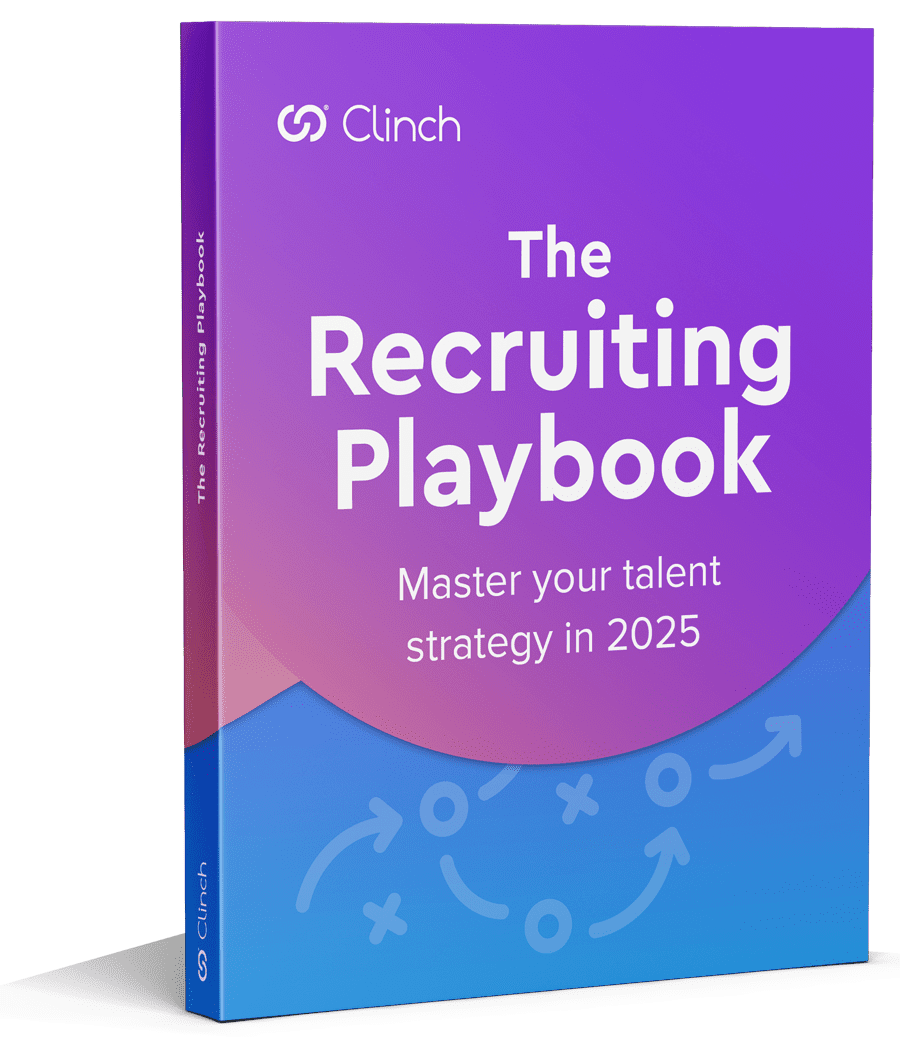How did you find your way into TA, what’s your story?
I started my career in the financial space working as a financial advisor at Morgan Stanley after getting a degree in marketing and not knowing what I wanted to do with my life. After September 11th hit I had a difficult time finding a job and I ended up becoming really close with my recruiter who I actually ended up becoming friends with. It was a very challenging time in the market to find a job and she had sent me on many interviews. When we saw that nothing was going to happen with those interviews she just said to me “Why don’t you just become a recruiter?” And I thought, “How am I going to recruit, I have no idea about that stuff.”
My recruiter friend told me “We’re a financial services recruiting firm and you come out of the financial services industry. You know a lot of people. All you have to do is find people for our clients, and we have a really large list of clients”. I said I’d give it a shot because it certainly doesn’t hurt to try something new, and today I own my own firm, Vaia, and am having the time of my life!
Tell me more about that, your early years.
Well staying with that Financial Services Agency, these are the tools they gave me on my first day: a desk, a phone – and are you ready for this – a yellow pages phone book! That was it! So I cried, I cried for six months because I wasn’t sure what I was supposed to do. I asked if there was any kind of training, and they gave me this book from the 1980’s and said, “read that and you’ll be fine.” I kinda flicked through the book and thought “Well this is a people business. I can sell. I sold everything. I sold shoes in high school. I sold bread. I sold stocks, bonds and mutual funds. Quirky as it sounds, I figured I could sell people to companies. I started off making $300 a week working on commission only waiting for that big commission check to come in. I stuck with it, and after about six months I started making placements, and fifteen years later give or take, I’m running a recruiting business.
What works best to engage and nurture candidates?
The fact that I have such a variety in my background certainly helps. Think about it, we’re in the business of people – so what can we do to attract talent? In today’s society we have social. Social media is great. We’ve got sourcing tools – they’re great. But my biggest thing that I always fall back on is: personalization. We can use these tools, we can use social media to find out so much about people. But I think if we’re not being personal with them – no matter what the industry is – they’re not listening.
I’m a little old school, I still get on the phone and talk to people. I tailor every single email message that goes out to a candidate. It’s very time consuming, but the phone and the personalization really works. I think being consistent with your communication is key and personalization makes it all work.
How about passive prospects?
People may beg to differ, but I think everybody is a passive prospect. If someone were to call with an amazing proposition I think you’d listen. I would. Call or send a message, tell them what you’d like to hear about them. I also think a bit of entertainment is something that should be involved in the outreach. For example, if you’re targeting a candidate and you find researching social media that they play guitar, send out a message and say “I see you play the guitar, we’re looking to bring on another guitar player to our team”. A little fun goes a long way. If you send something like that, something that’s interesting, the candidate will respond.
One other thing, how often do we consider what it’s like on the other side of the recruiter outreach? If someone was reaching out to me what would I like to receive on that end? If I got a really bad message would I open it or not? Going back to the basics, just be yourself, keep it fun, keep it entertaining and get some stuff out there and you’ll be surprised; people will respond.
What’s one of your most favorite campaigns?
There’s a company I worked with in Greece, a market that I wasn’t very familiar with. They were really small, maybe 20-30 people at the time, software development firm looking to grow. No one had heard of them. They didn’t really have an outreach or recruiting strategy. So I started customizing messages to candidates, putting some content out there, getting some information on a Facebook page and a Twitter page, focusing on personalization. It was tough going with a low response rate, but we kept at it. Fast forward two years later sending messages to candidates or posting something on social, we got responses like “Wow this sounds like a great opportunity. I’ve heard some amazing things about what you guys are doing”. Going from small company not well known at all in the industry to getting multiple responses from people saying “Oh I’ve heard about this company. That’s great – we’d love to hear more”. I’m proud of that, I really do like that. They’re still continuing to grow. Now they have over 220 employees. They grew from 20 employees to 220 in less than 2 years.
How do you get a company to stand out?
Today we know that with the Glassdoors of the world people can go out and find anything they want about a company. Being transparent and getting that authenticity to your target market is very important. There was another company that I had worked with that wasn’t very well known, a small software development company. Getting them to use their employees as brand ambassadors and getting that word out was something that worked very well.
When you ask people to share their story and talk about what it’s truly like to work at a company it can be magical. People can hire expensive video companies and yes, that can work, but why don’t you just ask your software developer to do a one minute video of themselves and say “This is why I like working here…” and post it on the website.
What’s the secret to converting great prospects into candidates?
There’s such a need for top talent and it’s such a challenging market out there. For me, I like to keep it real and be authentic with all of the people that I’m speaking with. I can’t say that enough. The experience I had in the past getting on the phone and calling people and talking to them and trying to sell them something helped. I think a lot of the old school techniques in whatever kind of sales environment I was in, really worked. To me, I say use all the tools, and there are so many, use them to your advantage to get the information you need and just really tailor the message to your audience, that’s probably the most important. People don’t want to be spammed, people don’t want to just receive junk and job descriptions. People want to see transparency, authenticity and something that’s going to be interesting.


